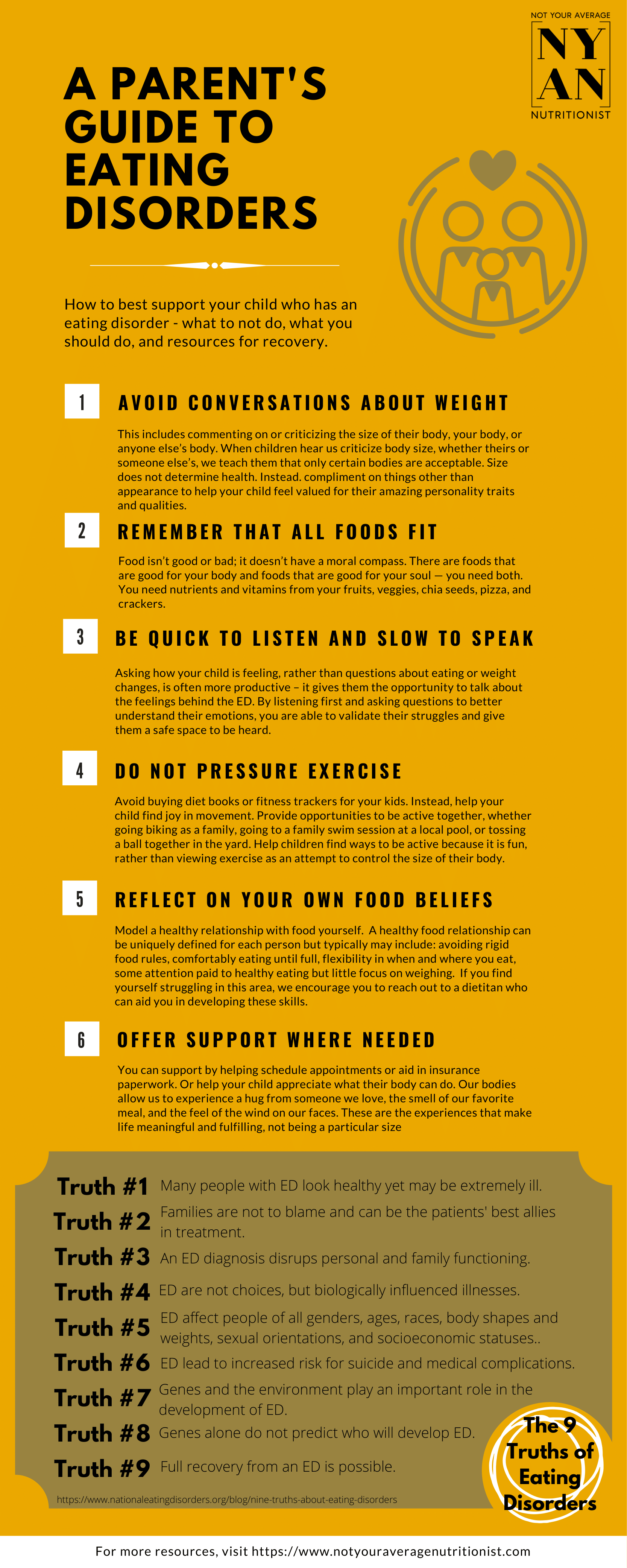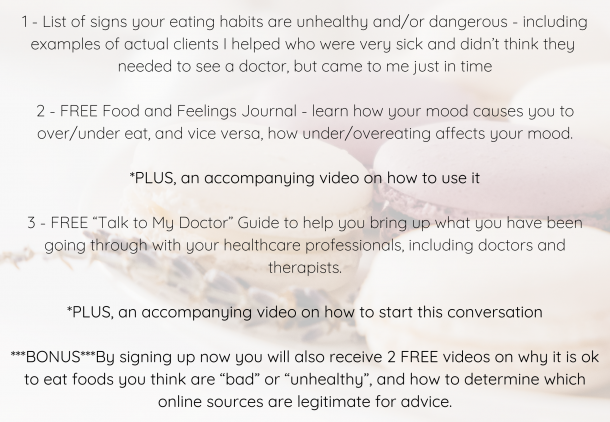By: Carisa Hilton
Carisa is a current (2020-2021) dietetic intern with Cal Poly SLO. She is an aspiring Registered Dietitian. Her goal is to be relatable and encourage everyone to feel confident and respected in their food choices. In her free time, Carisa enjoys hiking SLO’s beautiful hillsides, strolling the coast, or watching Netflix.
Dear Parents and Guardians,
Has your child been diagnosed with an eating disorder or showing signs of disordered eating behaviors? Are you struggling to find the right words to best support them? Do you feel like you will say or do the wrong thing?
Well, spoiler alert! If you’re reading this, it means you want to be a part of their recovery. And honestly, parental support is one of the most important parts of recovery. As the parent of a child with an eating disorder, you want to do everything you can to help your child overcome their struggles with food. One of the best steps you can take to help your child recover is to offer unconditional support and love to your child before, during, and after eating disorder treatment.
In the following infographic and video, you’ll find some ways to best support your child through their possibly painful, confusing, and scary eating disorder. In the graphic you’ll find a summarized approach to best support your child who has an eating disorder – what to not do, what you should do, and resources for recovery. And for more information, the following video explains the complexity of eating disorders, busts a few common myths, and offers suggestions towards having supportive conversations with your children surrounding food, exercise, and body image.

Remember, recovering from an eating disorder takes time. There are no quick fixes or miracle cures, so it’s important to be gentle and collaborative. Avoid placing unnecessary pressure on your loved one and instead provide hope and encouragement, praise each small step forward, and stay positive through struggles and setbacks.
Jane Howard quotes, “Call it a clan, call it a network, call it a tribe, call it a family. Whatever you call it, whoever you are, you need one.”
You can make a positive difference!
Carisa and Libby


